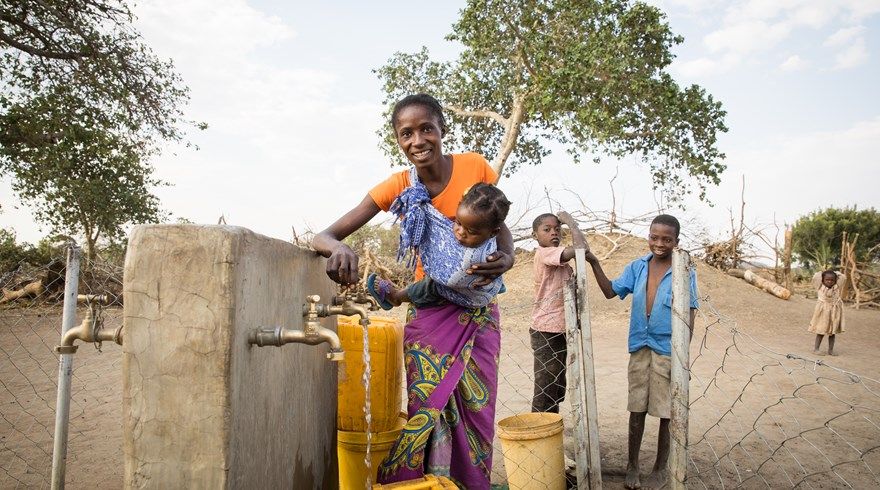
Zambia, like most sub-Saharan countries, has not been spared by the effects of climate change, in terms of drought and floods. Agriculture remains a major source of food security, income, employment, and livelihoods in Kafue sub-Basin of Zambia as it is one of the sectors that is mostly affected by climate change and require interventions for vulnerable peasant farmers to adapt to the “new normal”.
The United Nations Framework Convention on Climate Change (UNFCCC) noted that climate change refers to a change of climate which is attributed directly or indirectly to human activity that alters the composition of the global atmosphere and which is in addition to natural climate variability observed over comparable time periods.
In 2014 the African Development Bank predicated that climate change was going to cost Zambia USD 53 million in the next five years if measures are not put in place to minimise the impact.
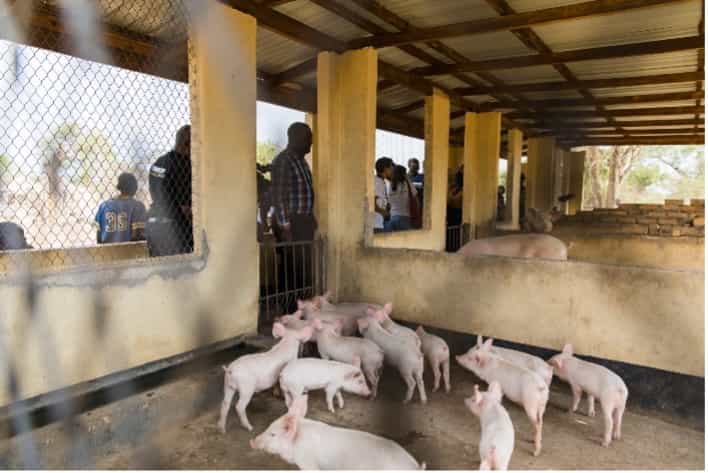
On the other hand, the Southern African Development Community (SADC) submitted that in 2001 and 2002 six countries, namely Lesotho, Malawi, Mozambique, Swaziland, Zambia and Zimbabwe, faced a food deficit of about 1.2 million tones of cereals and non-food requirements. These were estimated to cost USD 611 million.
To blunt the effects of climate change in Southern Zambia, a USD 38 million “Strengthening Climate Resilience in the Kafue sub-Basin”, SCRiKA Project, was launched as one of the Pilot Programme for Climate Resilience’s flagship projects, whose objective is to strengthen the adaptive capacity of rural communities to better respond to current climate variability and long-term consequences of climate change in the Kafue sub-basin.
The project is financed by the Climate Investment Fund (CIF), through the African Development Bank (AfDB). SCRiKA was aimed at piloting adaptive mechanisms in agricultural and natural resources management practices, climate-resilient rural infrastructure, and institutional capacity for planning against climate change.
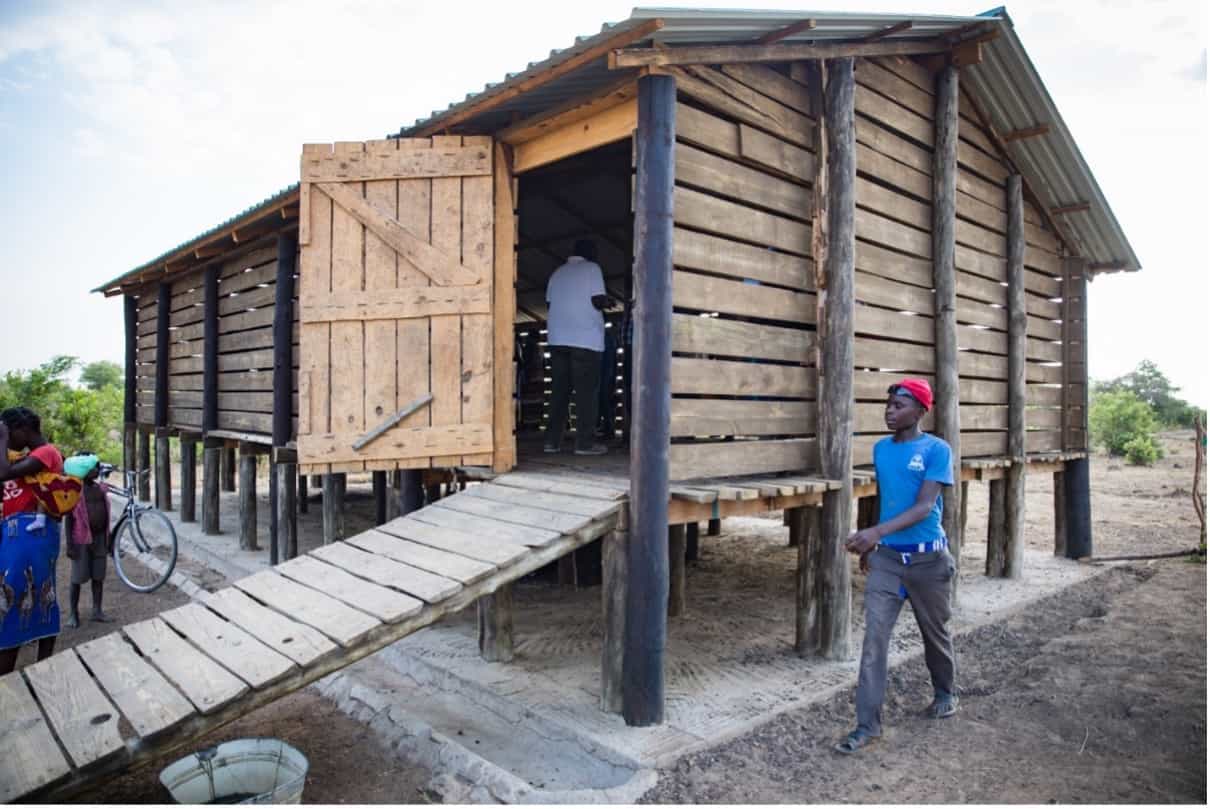
By the end of 2020, about 1,200 microprojects had been rolled out under SCRiKA to advance hard and soft adaptations, helping 800,000 Zambian farmers in 11 districts develop greater resilience to flooding and droughts. The districts are in Central (Chibombo, Itezhi tezhi, Mumbwa), Lusaka (Kafue, Shibuyunji) and Southern (Mazabuka, Monze, Pemba, Choma, Kalomo, Namwala) provinces of Zambia.
The SCRiKA project has also been supporting communities with livestock management, mainly management of small ruminants which can better withstand adverse climatic conditions, but can also be effectively bred to help communities realize increased income; with the construction of improved goat houses and pig infrastructure, as well as livestock service centers to support effective livestock production; solar powered poultry production infrastructure, which include solar powered egg incubators.
Other infrastructure supported includes fish ponds, solar powered borehole and livestock drinking troughs. This infrastructure aims to support community diversified livelihoods, even in the midst of climatic hazards.
Communities and farmers have also been trained in irrigation techniques, horticulture production as a business, goat rearing as a business (community level), crop rotation, inter-cropping, chicken rearing (free-range at household level) as a business, piggery, agro-forestry, honey production, crop diversification, aquaculture, Moringa production and value addition and conservation farming techniques such as zero tillage and use of animal manure for soil enrichment and water retention.
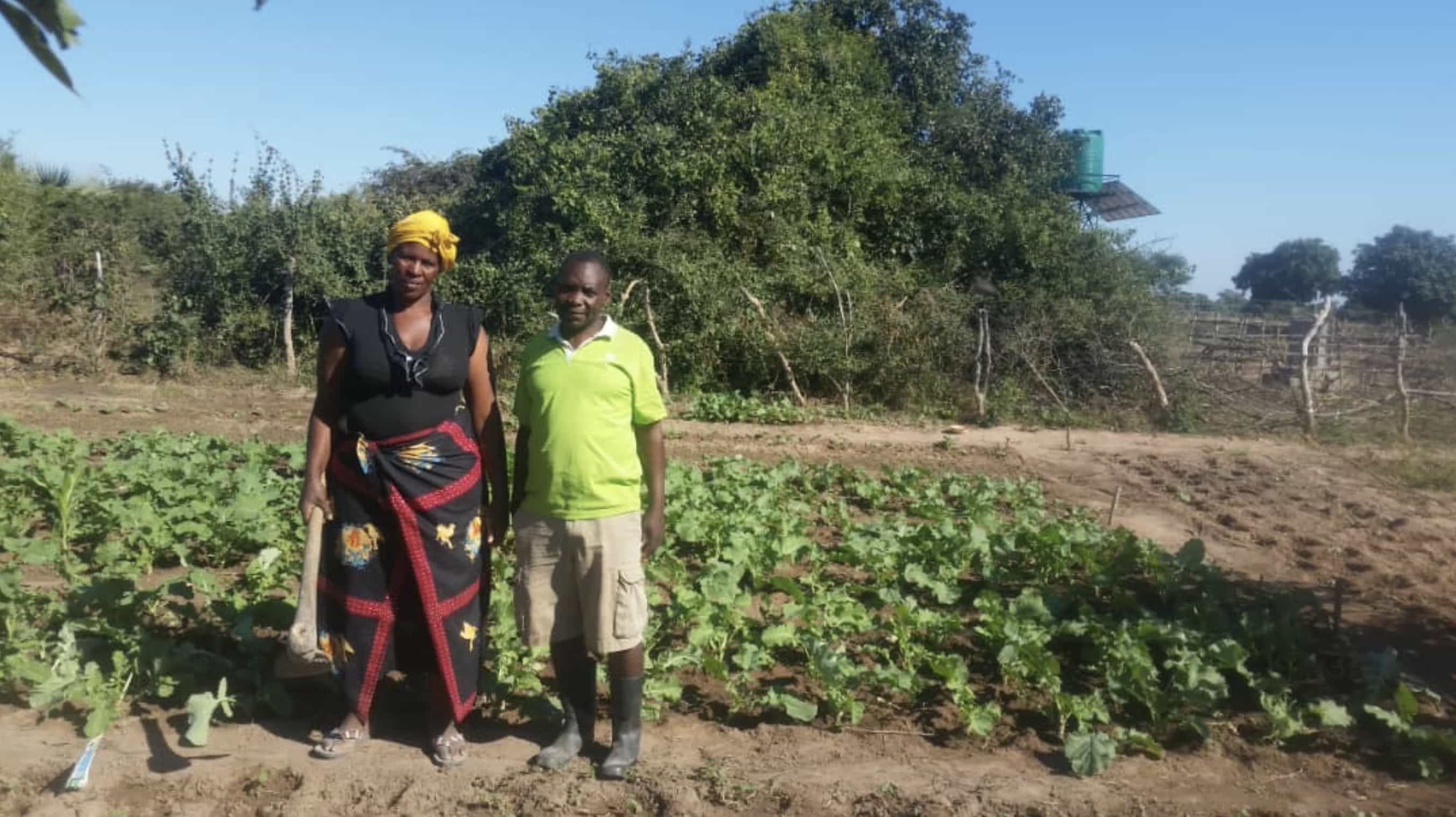
SCRiKA project beneficiary, Calvin Milimo (54) from Mukanoongwe village in Kantengwa Ward of Namwala district said the project brought hope to the village.
“I was so frustrated by what was happening because I could not do what I really wanted to do,” Milimo said.
“After the SCRiKA project was introduced and set up the solar-powered borehole, I immediately saw an opportunity to make my dreams come to life by starting a garden,”
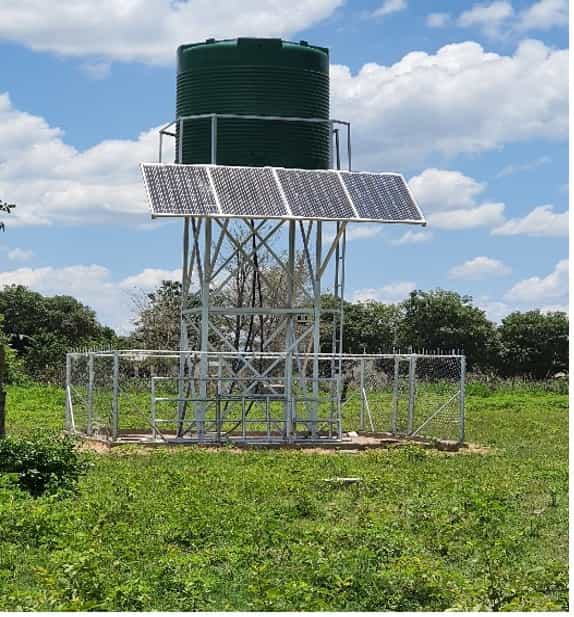
Milimo is now a proud owner of 40 by 40 meters of vegetable garden where he produces rape, cabbage, tomatoes, okra, onions and carrots.
“I use my garden to generate income for my household and have food for my family,” he said, adding that he can now afford three decent meals per day for his family.
Another beneficiary Gibson Hamooya from Lubombo Ward in Mazabuka commented: “This borehole has changed our lives completely. I don’t worry much about poor harvest from the maize field because I have money to buy maize or mealie meal. As long we have water here, my family will never go hungry. My children will always go to school, and I will improve my living conditions at home,” he says.
The effects of the SCRiKA project did not go unnoticed; it won the Africa Water Change Makers Award People’s Choice’s award. The results were announced during the Climate Adaptation Summit hosted by the Netherlands on 25 to 26 January, 2021.
The African Water Change Makers People’s Choice Awards are a parallel award process to the Water Change Makers, a global award introduced in 2020 by Global Water Partnership to make visible the teams and individuals who are building climate resilience by changing water decisions. The African parallel showcases the specific challenges of climate change adaptation in sub-Saharan Africa.
“We could not have done this alone,” said Indie Dinala, SCRIKA’s Project Manager and an official in Zambia’s Ministry of Planning and Development. “We thank the AfDB and CIF for enabling us build the resilience of rural farmers to cope with climate change in Zambia. The Government of Zambia, with support from them, has been successful in advancing climate resilient development, she said.
“Adaptation initiatives such as SCRiKA are required to cope with climate change-induced impacts on water resources in Africa,” said Wambui Gichuri, Acting Director of the Water Development and Sanitation Department, AfDB, who also serves as Acting Vice President for Agriculture, Human and Social Development at the Bank.
The Climate Adaptation Summit Water ChangeMaker award, organized by the Netherlands government and Global Water Partnership, celebrates and promotes teams and organizations in Africa shaping water decisions that build climate resilience in Africa, in recognition of the continent being on the frontline of climate change. The other two finalists were Zutari Water Resources Group in South Africa and Shire River Basin Management Programme in Malawi.
The World Bank estimates that between 2010 and 2050, the annual cost for adaptation to climate change in Sub-Saharan Africa (SSA) will be at least US$18 billion, not including funding necessary to place SSA countries on a low-carbon development pathway. While such financial estimates have been the subject of much debate, there is a general consensus that the level of financing currently reaching African countries is nowhere near enough to meet demonstrated needs, especially for immediate adaptation measures.
The CFU website reports that a total of US$1.16 billion1 has been approved for SSA, of which only US$3792 million has been disbursed to date. The large gap between funding approved and funding spent on projects suggests serious bottlenecks in program implementation.
The top recipients of dedicated climate finance initiatives in Sub-Saharan Africa (SSA) are South Africa (US$488 million), Mozambique (US$30million), the Democratic Republic of the Congo and Tanzania (with US$25 million each).
Many poorer countries appear to have been neglected by international climate finance support. For example, Uganda and Chad combined received less than US$0.5 million over the last three years from dedicated climate funds monitored by CFU.




